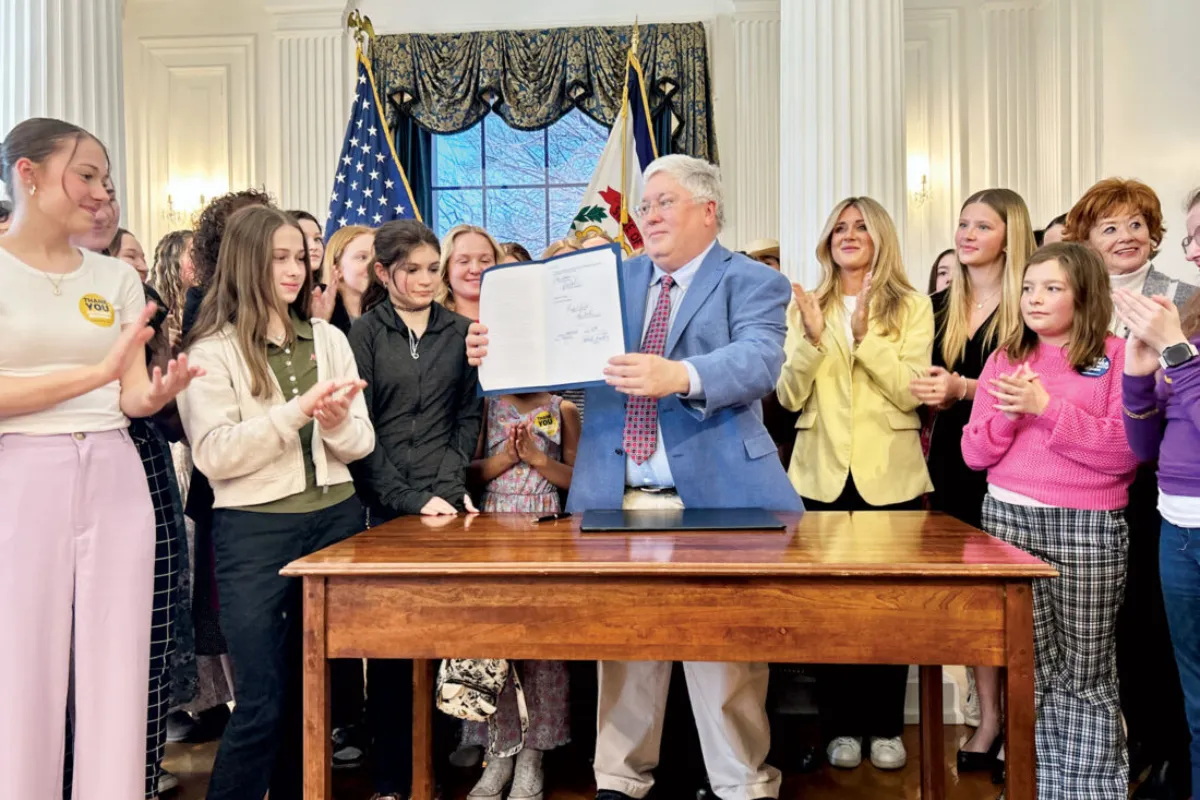West Virginia Governor Patrick Morrisey is voicing strong concerns over reports that some high school female athletes could face penalties for choosing not to compete against a transgender athlete. With the U.S.
Supreme Court still deliberating on the legality of the state’s ban on transgender girls and women participating in sports, Morrisey is urging state athletic officials to allow biological girls to protest such competitions without punishment.
In a statement released Tuesday evening, Morrisey responded to what he described as troubling reports from high school track programs across the state.
“I am hearing that high school track coaches in West Virginia are threatening to force girl track and field athletes to compete against a boy or face suspension — which could remove their opportunity to participate in the state championships,” Morrisey said. “This cannot stand.”
The controversy centers around the state’s 2021 law, House Bill 3293—also known as the Save Women’s Sports Act. The law requires student-athletes in public schools and colleges to compete in sports that align with the sex assigned to them at birth.
However, its enforcement was blocked by the U.S. Fourth Circuit Court of Appeals, a decision that the U.S. Supreme Court declined to immediately overturn, effectively pausing the law.
The legal challenge to the bill was initiated by Becky Pepper-Jackson, a transgender middle school track and cross-country athlete. Represented by Lambda Legal and the ACLU, Pepper-Jackson sued the state shortly after the law was enacted, arguing that it discriminates against transgender youth.
Although a lower court initially allowed the law to be enforced, that decision was later reversed, and the case continues to make its way through the courts.
Morrisey, who previously served as the state’s Attorney General, filed a petition asking the U.S. Supreme Court to review the case. While the Court has yet to take up the matter, Morrisey has remained vocal in his opposition to the inclusion of transgender girls in girls’ sports.
“I believe what is going on right now in West Virginia – with boys playing sports against girls — to be abhorrent and contrary to law,” Morrisey said. “While we wait for the Supreme Court to issue their ruling in this case, I’m calling on all coaches involved to let these brave athletes take a stand for what is right without unfair punishment.”
Last spring, the debate intensified when five girls from Lincoln Middle School refused to participate in a shot put event against Pepper-Jackson, citing fairness concerns. Those same students later joined Morrisey at the March signing of Senate Bill 456, known as the Riley Gaines Act.
The legislation, named after the former college swimmer who publicly criticized the NCAA’s transgender athlete policies, defines “male” and “female” in state code and is intended to protect single-sex participation in sports.
In addition to SB 456, Morrisey has supported other bills targeting transgender youth. This includes Senate Bill 299, which bans nearly all gender-affirming medical care for minors, and Senate Bill 154, which restricts public school instruction on gender identity and sexual orientation. The latter also mandates that parents be notified if a student wishes to be referred to by a different name or pronoun at school.
Morrisey concluded his remarks by asking officials overseeing the upcoming state high school track and field championships to be prepared to adjust results if the Supreme Court ultimately rules in favor of the state.
“As we all work toward removing the wrongly-decided injunction in upcoming months,” he said, “I ask for all tournament officials to keep a full set of results so that true winners of each event may be recognized when the Supreme Court rules in our favor.”
A request for comment from the West Virginia Secondary School Activities Commission had not been answered by the time of publication.










